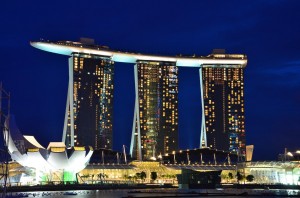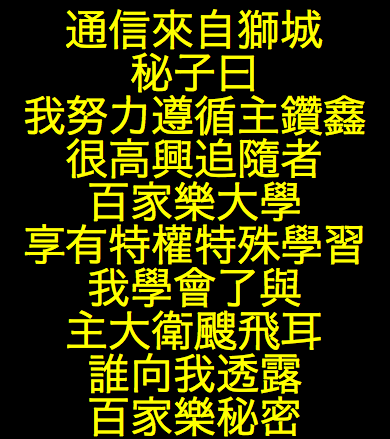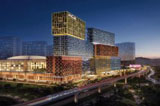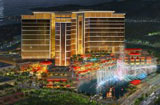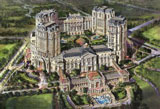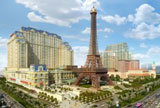There is no better operator in the world of gaming, to be sure. Steve Wynn runs a slick, profitable operation, based on a dedication to quality that no one can match – not Sands, not Melco-Crown, not Galaxy, and most certainly not MGM, try though they might. What he does with what he has is a feat that others – even those that used to work for him and have since moved to his rivals – can only admire and envy. This was again in evidence with his Q2 results reported overnight in New York: Ebitda of US$314m for the Macau operation (before royalties) was well ahead of most analysts’ forecasts. Pound for pound, table for table, he’s still No. 1.
Wynn Macau’s stock price took off in early Hong Kong trading, unsurprisingly. We do note, however, that at least two respected analysts, Praveen Choudhary of Morgan Stanley and Gary Pinge of Macquarie, wrote less than jubilant notes following the results announcement. And we have to say that we are starting to concur with their views. It’s a well-run company, but the growth story is sounding tired.
To be sure, there is no way we would bet against Wynn. Although his VIP revenues in Q2 grew mostly in line with the market, his mass business continues to show eye-catching growth. So much so, in fact, that we have to wonder about how much of that business is really walk-in players as opposed to those brought in on marketing programs of some kind. Bur we would never voice such a suggestion out loud, as we have absolutely no evidence to back it up. Suffice to say that his mass floor is doing remarkably well. Almost as well as the Grand Lisboa, we would suspect. And way, way better than MGM, pre- or post-IPO.
Moreover, we don’t yet believe that Wynn’s Macau property faces any threat whatsoever from the new Galaxy Macau resort in Cotai, which is doing about half the level of his mass business since opening two months ago. If anything, GM is proving that Cotai properties are a different breed than those on the peninsula: they have to build their own loyalty bases among visitors who prefer not to move between several properties on a trip. Nice though that property is, it is clearly not making inroads at the high end of the mass market, an area dominated by Wynn.
However, Galaxy Macau is not Lot 5&6. We wrote a special report on the mass market more than 18 months ago in which we predicted that the opening of the new Galaxy property this year would not be Cotai’s watershed event. That moment would come only when Lot 5&6 opens, we said, and we stand by that prediction. Once the Venetian and Four Seasons/Plaza are connected by air-conditioned walkway to another 6,000 hotel rooms, plus retail, plus convention space, plus plus across the road, then Cotai will have a behemoth big enough and diverse enough to challenge the connectivity of the Lisboa/Wynn/MGM/L’Arc/Starworld cluster on the peninsula.
Which might explain why Wynn has been trying so hard recently to keep expectations pumped about his own plans for Cotai. It’s not about the next year or three. He has more than enough capacity at his peninsula property to keep pumping out great results as this market goes from strength to strength. But Lot 5&6 will likely start to open in phases next year, while his project’s beautiful plans are still stuck firmly on the drawing board. It must be driving the man crazy.
Judging by his recent indiscretions, it obviously is. Again on the conference call with analysts, he declared that his Cotai resort will have 500 gaming tables on it. This is barely weeks after the Land Secretary, Lau Si You, publicly rebuked Lawrence Ho for declaring that Macao Studio City will have 400 gaming tables, when nothing has yet been approved by the government. There is clearly nothing that Wynn can do to make his land, let alone his casino, wind its way into the government gazette right now. Not the US$200m pledge to Macau University (half of which we notice was absorbed in these results). Not the US$12m paid for the vases. Nada.
We sincerely hope nobody takes us the wrong way on this. We do not wish Wynn difficulties. He has done much to raise the international profile of Macau since investing here in the 2002 concession bidding process. He has raised the bar for everyone in this market, and in this region, with the quality of the product and service he offers. And yes, he has made a lot of money here. But to assume that this means he – and all the others clamouring for land in Cotai – will be guaranteed hundreds of new gaming tables for any new project going forward is to assume a lot, in our humble opinion.
So yes, we can understand why Pinge and Choudhary are saying the stock is fairly valued. Stay tuned for more. Copyright and used with permission of IntelMacau.com











